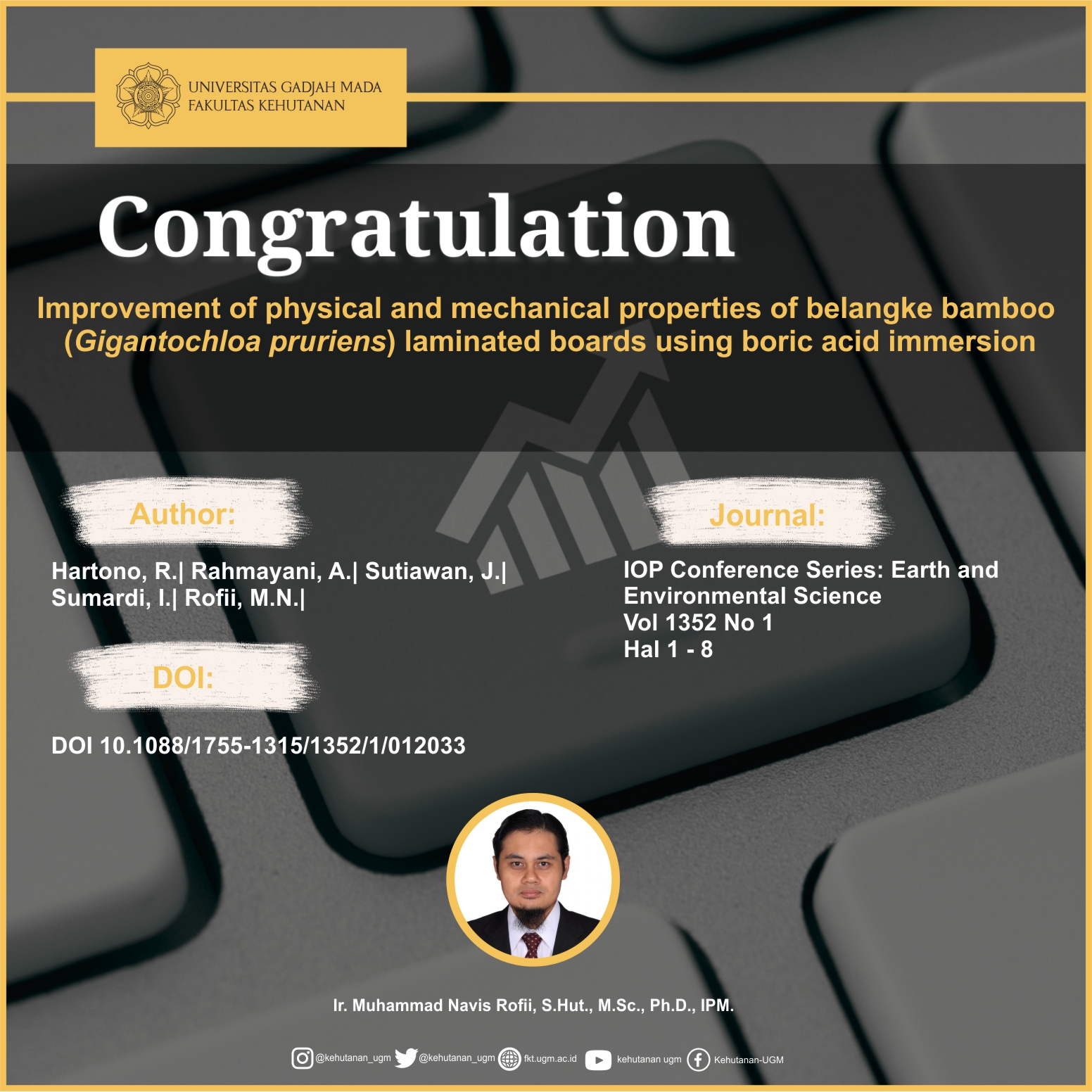
Abstract
A laminate board is a composite board formed from a combination of several laminates and glued together using adhesives in the parallel direction of the fibers. Belangke bamboo, as a substitute for wood, can be used as raw material for making laminated boards. Belangke bamboo has fairly good strength but has a weakness, namely, being vulnerable to attacks by destructive agents. Adding boric acid immersion treatment is one of the modifications to laminated boards to increase their strength and durability against attacks by destructive organisms. This study aims to analyze the physical and mechanical properties of laminated boards from striped bamboo with the effect of immersion treatment from 0 hours, 6 hours, 12 hours and 24 hours. The laminated board consists of 3 layers measuring 30 cm long, 15 cm wide, and 0.5 cm thick, which are glued using 280 g/m2 isocyanate adhesive and cold pressed for 24 hours with conditioning for ten days. The results of the physical properties test of this study obtained the average value in the weight percent gain (WPG) test ranged from 2.66-3.33%, density ranged from 0.79-0.97 g/cm3, moisture content ranged from 12.67%-13.40%, and delamination ranged from 2.37-7.77%. The results of mechanical properties testing showed the average value of modulus of elasticity (MOE) testing of 112383.20-127377.74 kg/cm2, modulus of rupture (MOR) of 371.69-578.95 kg/cm2, and shear strength ranged from 14.61–27.73 kg/cm2. From the analysis of variance, the best-laminated board is found in the 6-hour boric acid immersion time.
SDGs:
1. SDGs 8:Decent Work and Economic Growth
2. SDGs 9:Industry, Innovation, and Infrastructure
3. SDGs 12:Responsible Consumption and Production
4. SDGs 15:Life on Land
Link Dokumen:
Download
